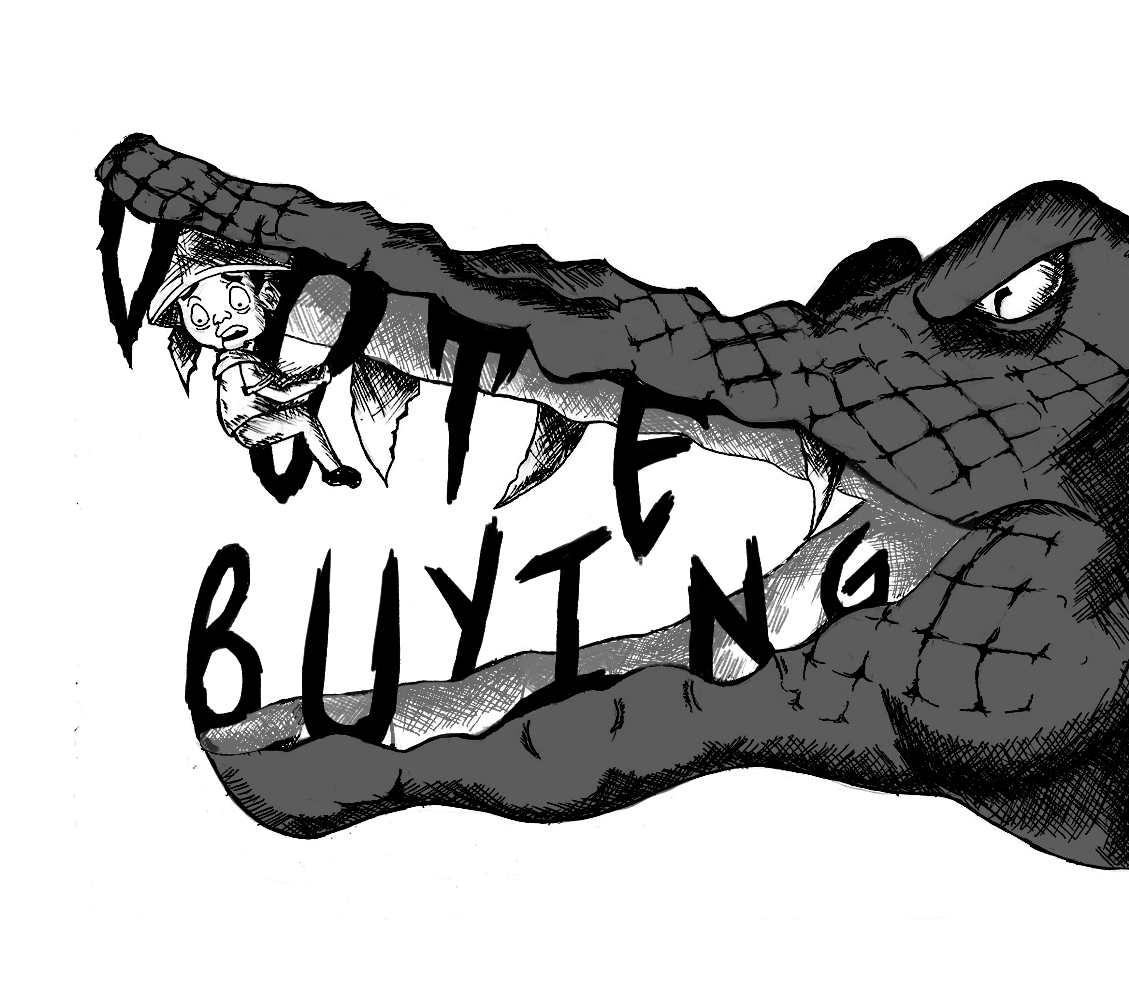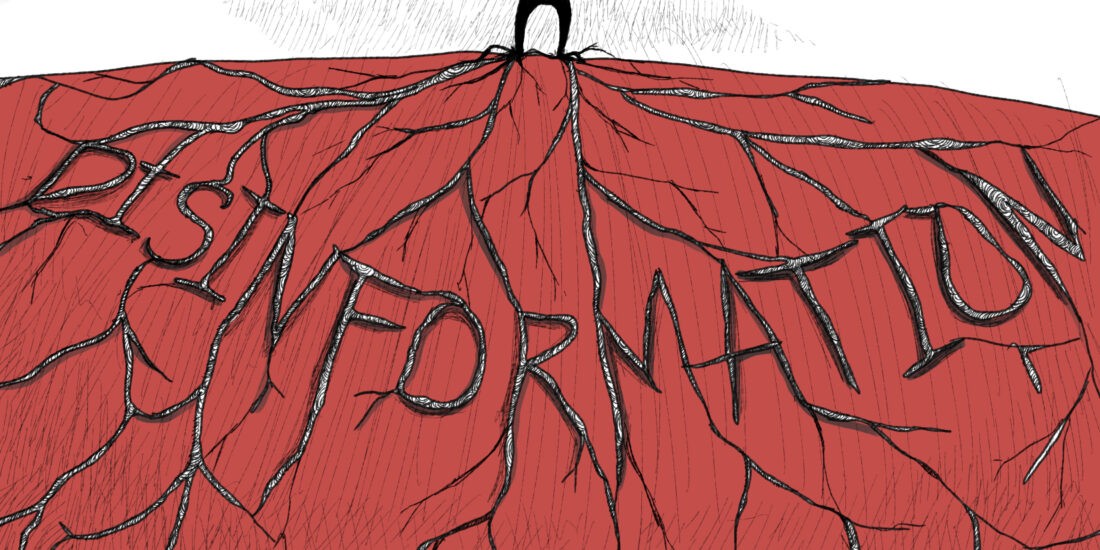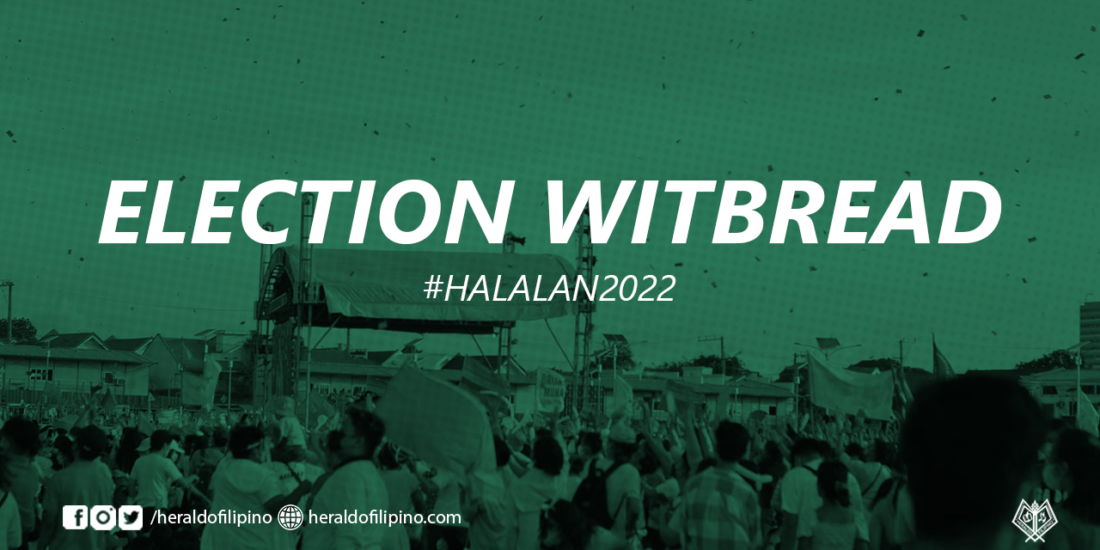Behind the pack: The canned realities of vote-buying
In a system that enables vote buyers, the poor and the so-called “bayaran” are made to be scapegoats.
We’ve all seen it on the news. Candidates showering people with blue and yellow bills in political rallies. Politicians issuing cash aid when their presidential bet arrives in the town. People weathering the blazing heat to line up for packs of canned goods and cups of noodles that could barely last a week.
Others would probably tell us to never accept these bribes from politicians in exchange for short-term relief. Sadly, this narrative is even more prevailing than telling candidates to never bribe anyone, to never take anyone’s weakness for granted, to never exploit people for their political ambitions. At this time where millions of Filipinos could barely buy canned goods and two kilos of rice to have food on the table, putting the ‘bayarans’ on the pedestal does not make us any less than the condescending, privileged, and blindfolded people we hate to become. Truth is, those who can only afford to comfortably say no to bribes are those who could comfortably sleep at night without having to worry what to eat the next day.
Failing to understand where these people are coming from stems from the failure to acknowledge one’s privilege: the privilege to access many things that they cannot even hold a grasp of, the privilege to send their children to school, the privilege to earn more than the minimum wage, and the privilege to survive a day.
In a country where ordinary workers have to fight tooth and nail to get the salary they deserve, resisting anything that could feed their starving stomach will almost be impossible. In a system where the poor have to work more than 18 hours a day while some are earning billions while sitting comfortably at home, the temporary relief feels like a permanent change for them. Thus, these stories make it more convenient for politicians to manipulate people, hit the spot that could maneuver their interests, and sway them with short-term promises, in exchange for long-term sufferings. This is the reason why we should never pass any single inch of blame to people who line up at rallies for a P500 bill. At the end of the day, we all have our traditional politicians and an exploitative system to challenge, resist, and get enraged with.
Looking into the vote-buying culture in the Philippines, taking the moral high ground when it comes to the virtue of safeguarding one’s vote almost always ends with condemning those who sell theirs. Cases of vote-buying, while prevalent, hardly ever get the consequences from those who are supposed to protect the integrity of elections – the Commission of Elections (COMELEC). We see them everywhere, from the news down to our own cities and respective barangays. We also see them in the guise of ayuda and other goods, which brings the question of what other factors count as vote-buying aside from the commonly known sobre. Yet we never see vote-buyers being brought into light, or any candidate being penalized for violating other electoral offenses in the omnibus code.
The reason: vote-buying in the Philippines had been normalized to the point that it’s treated as a natural occurrence. In a system where candidates can put a price on people’s votes and get away with it, trying to report a single case of vote-buying is just about as effective as the screening process of the candidates – completely useless.
After all, what can we expect from a system that allows thieves, tax-evaders, and those with pending cases to run for elections?
More than the bayarans and trapos, what we need to change is the system that enables them to trample on our democracy: the system that allows a select few and their brood to run for the same position for decades, the system that condemns vote-buying but makes no move to eliminate the vote-buyers from the race, and the system that allows politicians to make a circus of a process that will dictate our next six years.
***
As long as the gates are open for trapos and political dynasties, so are the exchange of hands for vote-buying, allowing the longstanding cycle of electing trapos and suffering for the remainder of the term to prevail. Hence, to put the blame on those who take bribes only gives these politicians a free pass to manipulate people for as long as they want – securing huge political gains all while people are taking a myriad of losses.





